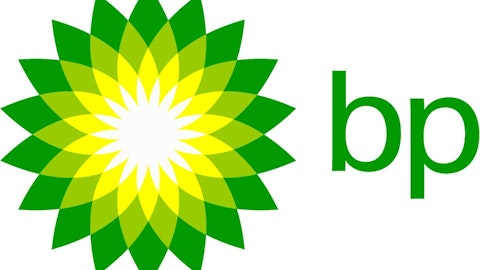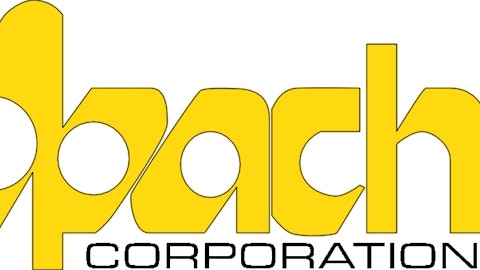Northern Africa has seen its share of violence over the past couple of years. From the Arab Spring to the Benghazi and Amenas attacks, it seems like the whole region is becoming less stable. At the same time, the region is blessed with vast oil and gas reserves, which have attracted several U.S.-based oil and gas producers. Given the increased violence, one has to wonder if it’s really worth the true cost of developing these resources.
The attack on the Amenas natural gas facility in Algeria, which is operated by BP plc (ADR) (NYSE:BP), led to the deaths of about 40 foreign workers. Worse yet, the attack could mark just the beginning of what could become increased violence and bloodshed against foreign workers in the region. The threat of further violence is one of the reasons why BP has been withdrawing some of its personnel from Libya.
The question is whether U.S. oil producers in the region should do the same… if not pull out of the region all together. One thing that is becoming increasingly clear, operating in the region certainly doesn’t sit well with investors. The value of many companies with ties to region have been weighed down simply because the companies have operations in Africa.
This can be seen when looking at companies with operations in Libya. Both Marathon Oil Corporation (NYSE:MRO) and Occidental Petroleum Corporation (NYSE:OXY), for example, have operations in the country, which could be part of the reason why both stocks are trading cheaply when compared to their U.S.-centric peers. Marathon, for example, trades at just three times enterprise value to estimated 2013 EBITDA making it one of the cheapest, large-cap, independent, exploration and production companies in the market. Occidental isn’t quite as cheap, but at 5.4 times it’s still at the lower end of its peer group.
Marathon Oil Corporation (NYSE:MRO)’s exposure to Libya consists of its 16.2% working interest in the Waha Group, which has exploration and production rights in the country. However, the unrest in the country had caused production to cease in 2011. Marathon has been basically pulling out Libya of the equation when reporting its production numbers because of uncertainty around sustained production and sales levels. Because investors don’t like uncertainty, the company’s Libya operations are likely keeping a lid on its stock.
Occidental Petroleum Corporation (NYSE:OXY)’s history in Libya dates all the way back to the 1960s. More recently the company was the first to restart operations in the country after the U.S. lifted sanctions in 2004. Overall, Libya isn’t a focus of the company, as Occidental participates with the national oil company as well as in several onshore exploration blocks. That being said, Libya could be one of the factors weighing down its share price.
The dilemma for both investors and oil and gas companies is that Libya has a lot of oil. In addition to its conventional resources the country has an estimated 26 billion barrels of technically recoverable shale oil. That makes it the fifth-largest holder of shale oil reserves in the world. Despite the challenges, the country’s potential is just too tempting to pass up.
It’s a similar story in Egypt, where Apache Corporation (NYSE:APA) operates. Like its peers with a presence in Libya, Apache’s Egyptian operations are likely one reason why the company has a very cheap stock price. Many investors would like to see the company shed these assets to unlock value. The thing is that the company is the top oil producer in the country and has grown its production for the past 17 years. That helped it to produce about $2.7 billion in cash flow last year. While production growth has slowed in recent years, Apache has made several recent discoveries and is spending about $1.1 billion this year to grow production. The company has great assets in the country but the market isn’t recognizing the value because of the instability in the region.

Source: Apache
Despite the promise for continued production growth and profits, violence still looms as a threat. So, that begs the question: Should producers just call it quits? Let’s face it, these companies have more than enough opportunities to grow production in the U.S. thanks to our own shale boom that it might not be worth the headaches in northern Africa. All three could follow in the footsteps of fellow U.S.-based large-cap explorer and producer Devon Energy Corp (NYSE:DVN), which decided to completely exit its international business by selling it off piece by piece a few years ago. The company was able to add billions to its balance sheet as well as de-risk its operations.
Another option is for each company to simply split off its international operations into a separate company. Marathon Oil Corporation (NYSE:MRO)is quite familiar with that process having spun off its refinery business. Occidental Petroleum Corporation (NYSE:OXY) is already considering a similar move with its international operations. That would take the focus of both management and investors off of its international assets so that the focus is on North America, a market which has the potential to really grow over the next few years.
While breaking up is hard to do, these companies really do face tough choices when it comes to deciding whether or not to hold on to international operations, especially those in North Africa. It’s quite clear that both Apache Corporation (NYSE:APA)Z and Marathon Oil Corporation (NYSE:MRO) are being weighed down by holding these businesses. I’d be willing to bet that, if Occidental Petroleum Corporation (NYSE:OXY) moves forward with its plans to split off its international operations, both companies will be pressured to follow suit.
The article Should U.S. Oil Producers Give up on Northern Africa? originally appeared on Fool.com.
Fool contributor Matt DiLallo has no position in any stocks mentioned. The Motley Fool owns shares of Apache and Devon Energy.
Copyright © 1995 – 2013 The Motley Fool, LLC. All rights reserved. The Motley Fool has a disclosure policy.





